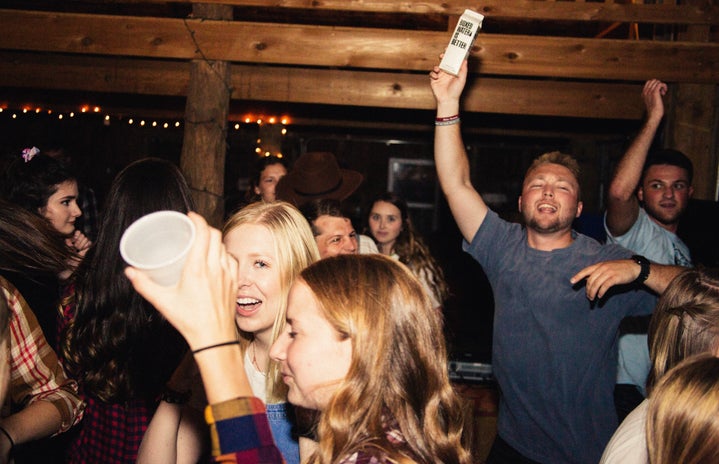*Content Warning* Please be warned that this text contains discussion of substance abuse.
While I was still in high school, I remember an older friend of mine talking about the excessive amount of drugs and alcohol she was consuming. She joked to me rhetorically, “like, am I an addict, or am I just in college?” Four years later, I still think about this remark, because I think she was asking a question that a lot of college students honestly don’t know the answer to.
Drug and alcohol abuse is far more common than many people are aware. With 31% of US college students reporting symptoms of alcohol abuse, it’s not unlikely that you could know someone struggling with these issues. Unfortunately, the fear of judgment and shame can discourage students from confronting the addictive behaviors that are challenging themselves or a friend. It is a scary problem to deal with, but it is far scarier to let substance abuse continue to progress unmanaged.
While the difference between having fun and having a problem can appear nuanced, certain signs can indicate you or a friend should seek professional help. Below are some of the primary symptoms of substance addiction reported by psychiatric specialists.
1. Continuing to use a substance, although it is negatively impacting one’s relationships, work, safety, or health.
This negative impact might look like someone falling behind in their classes due to repeated hangovers or not safely vetting the source of a drug they decide to use. Maybe they are continuously saying and doing things that are hurting their friendships or living environment, but they are regretful and apologetic when sober. It might feel like being stuck in a negative feedback loop. However, it is crucial to recognize that it is possible to escape that loop. Once acknowledged, steps can be taken to regain control and no longer hurt these areas of your life.
2. Being unable to stop or limit one’s intake despite making efforts to.
After a night of regret, you might hear a friend say “I’m never drinking again” all to begin pre-gaming once nine PM rolls around. Or, maybe a roommate asks you to “hide the puff” from them in an attempt to cut back on their nicotine use. But, the second they get stressed out, they plead their case to take it back. If you notice a pattern of compulsive behaviors like these, it is a good idea to seek help in regaining control around substances.
3. Feeling hyper-focused on that activity.
Looking forward to the weekend is not unusual. But, disengaging throughout your day and waiting eagerly to consume a substance can impact your mental health negatively. This can also manifest in hiding one’s substances to ensure they are well-supplied and uninhibited by others.
4. Changes in interests and moods.
Sometimes the party scene can feel too intense without the relaxing effects of mind-altering substances. However, if you or a friend feels unable to socialize or do things they once enjoyed without being intoxicated, it might be a sign that substances have gained too much power. Other alarming personal changes can include heightened anxiety and depression or drastic changes to sleeping patterns and weight.
There is a wide variety of behaviors and experiences that can result from drug and alcohol addiction. These are just a few common results of substance abuse. If you would like to take a closer look at your or a loved one’s relationship with drugs and alcohol, check out the UCSB Alcohol and Drug Program’s Self Assessment List. If the mentioned symptoms do apply, or you are uncomfortable with your own or a friend’s substance use, call (805) 893-5013 or email adp@sa.ucsb.edu to discuss your options for help with specialists at UCSB’s Alcohol and Drug Program. Lastly, do not be afraid to seek help and speak up if you are concerned. With something as dangerous and detrimental as substance abuse, it is far better to make a big deal out of nothing than to treat a big deal like it is nothing.

